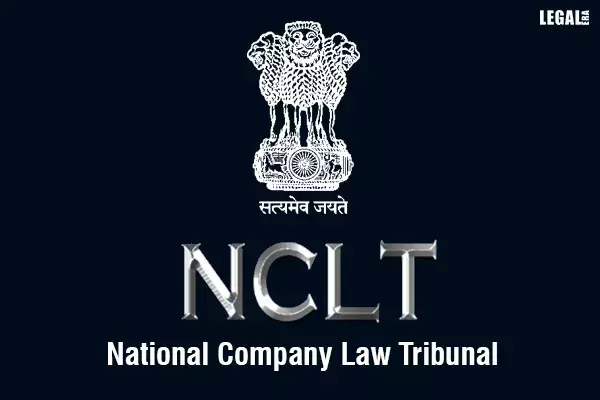NCLT Delhi Gives go-ahead to Ace Infracity's Resolution Plan for Three C Homes; ‘Lotus City’ Development Set to Complete in 24 Months
The National Company Law Tribunal (NCLT), New Delhi Bench, composed of Bachu Venkat Balaram Das (Judicial Member) and Atul;

NCLT Delhi Gives go-ahead to Ace Infracity's Resolution Plan for Three C Homes; ‘Lotus City’ Development Set to Complete in 24 Months
The National Company Law Tribunal (NCLT), New Delhi Bench, composed of Bachu Venkat Balaram Das (Judicial Member) and Atul Chaturvedi (Technical Member), has approved the resolution plan submitted by M/s. Ace Infracity Developers Pvt. Ltd. for Three C Homes Pvt. Ltd. The approved Resolution Plan carries an approximate value of ₹140 crore. The decision was made during the adjudication of the petition filed in the case of Arun Kumar Sinha v M/s Three C Homes Pvt. Ltd.
As part of their resolution plan, Ace Infracity Developers Pvt. Ltd. has put forward a proposal to complete the development of plots in the 'Lotus City' project and deliver them to the allottees within a timeframe of 24 months. Additionally, Ace Infracity intends to initiate the process of re-registering the 'Lotus City' project with the Real Estate Regulatory Authority (RERA) to ensure the successful completion of the remaining work.
M/s. Three C Homes Private Limited, the Corporate Debtor in question, operates in the real estate development sector and has undertaken the development of a residential project called 'Lotus City' near the Yamuna Expressway in NOIDA. To facilitate the development of this project, the Corporate Debtor entered into a lease agreement with the Yamuna Expressway Industrial Development Authority (YEIDA) for the land. It is important to note that the land leased by the Corporate Debtor was acquired by YEIDA from the farmers.
Arun Kumar Sinha, who is a Financial Creditor, filed a petition under Section 7 of the Insolvency and Bankruptcy Code, 2016 (IBC), seeking the initiation of the Corporate Insolvency Resolution Process (CIRP) against the Corporate Debtor. Consequently, in 2019, the Corporate Debtor was admitted into the CIRP.
M/s. Ace Infracity Developers Pvt. Ltd., identified as the Successful Resolution Applicant (SRA), submitted a resolution plan for the Corporate Debtor. The plan received approval from the Committee of Creditors (CoC) with a unanimous 100 per cent voting share.
The fair value of the Corporate Debtor is estimated to be around ₹600 crores, while the liquidation value is approximately ₹480 crores. In contrast, the Resolution Plan presented by M/s. Ace Infracity Developers Pvt. Ltd. is valued at ₹ 140,39,27,000. It is noteworthy that no claims have been received from the operational creditors, resulting in zero payments being allocated to them under the approved plan.
The Promoters and related parties of the Corporate Debtor made claims for amounts they had purportedly loaned to the Corporate Debtor. However, upon review, no loan agreement or supporting documentation could be provided to verify these claims.
Consequently, the resolution plan categorized these claims as "other claims." It should be noted that these "other claims" will not be settled through the resolution plan but will be resolved in accordance with the applicable legal procedures.
Concerning the compensation owed to farmers, the Successful Resolution Applicant (SRA) is proposing to provide 100 per cent of the principal amount of farmer's compensation, which amounts to ₹71.66 crore. This compensation is included in the total sum of ₹173.46 crore that the SRA has agreed to pay to the Yamuna Expressway Industrial Development Authority (YEIDA).
As part of the resolution plan, the Successful Resolution Applicant (SRA) has committed to carry out the remaining development work in the Lotus City Project and deliver the completed units to the respective allottees. The plan outlines a timeframe of 24 months for the completion of the project and the subsequent handover of the units. Additionally, the SRA will initiate the process of seeking re-registration of the project with the RERA to ensure the proper completion of the remaining work.
YEIDA had granted a Lease Deed to the Corporate Debtor for approximately 100 acres of land. However, the Corporate Debtor failed to fulfill its financial obligations concerning Lease Rent, Land Premium, and additional compensation owed to the farmers from whom the land was acquired.
YEIDA raised objections to the resolution plan put forth by the SRA on the grounds that the proposed payment of ₹67.12 crore fell significantly short of the total dues amounting to ₹506 crore as per the terms of the Lease Deed. Additionally, YEIDA expressed concern that the resolution plan allowed the SRA to develop and profit from a public asset without shouldering any substantial burden, which YEIDA deemed prejudicial to the public interest.
In its verdict, the NCLT Bench dismissed the objections raised by YEIDA and determined that the resolution plan adequately addressed the concerns raised by YEIDA, even in the absence of any filed claims. The Bench concluded that the provisions within the resolution plan adequately accounted for the objections put forth by YEIDA.
The NCLT Bench, recognising the unanimous voting share of 100 per cent by the CoC in favour of the resolution plan, concluded that the commercial judgment exercised by the CoC did not necessitate any intervention. Consequently, the Bench approved the resolution plan proposed by Ace Infracity Pvt. Ltd. for the revival of Three C Homes Pvt. Ltd.

